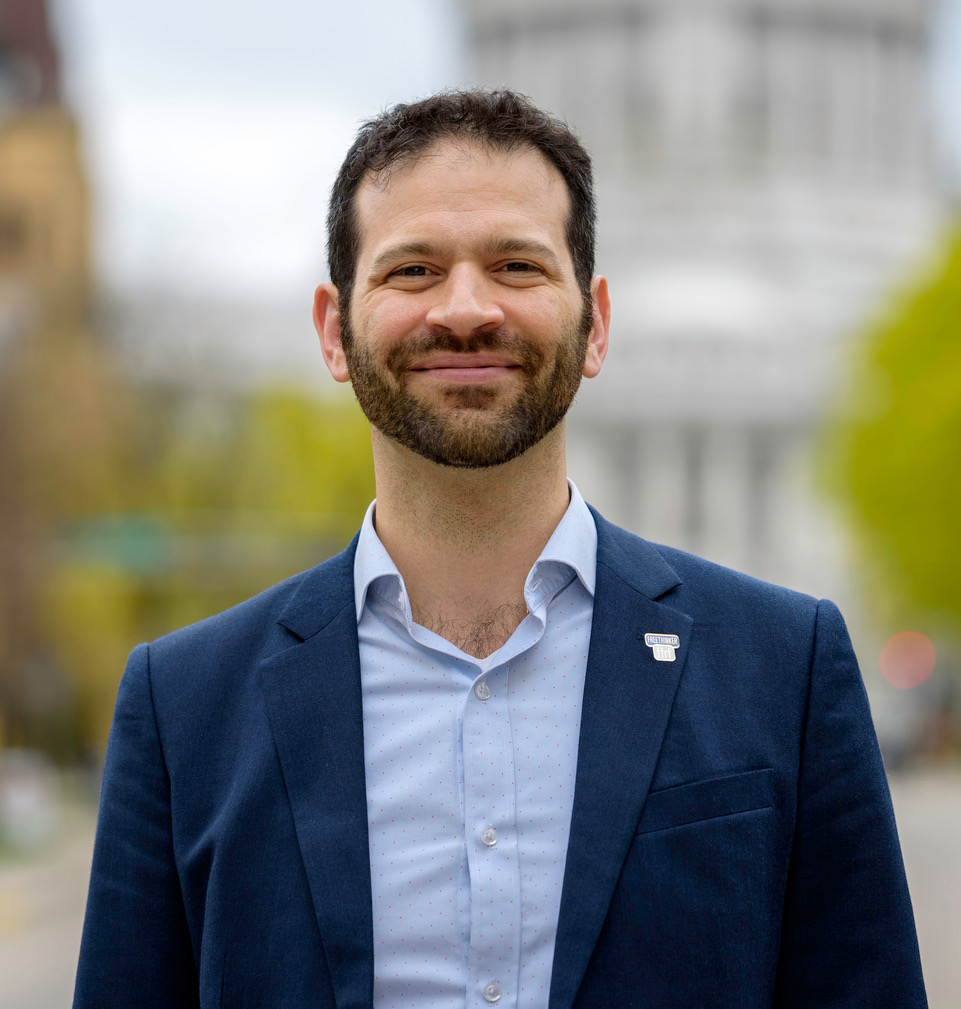
Recently, the Equality Act — one of FFRF’s top priorities for legislation — passed the House (224–206). It provides consistent and explicit anti-discrimination protections for LGBTQ people across key areas of life, and it is starting to move in the Senate.
The debate on the Equality Act is instructive on where Congress is on issues relating to the separation of state and church. In this edition of FFRF’s Mark on the Hill, let’s talk about the debate, how the opposition is becoming even more strident, and the ramifications for our movement.
Equality Act debate in the 116th Congress vs. the 117th Congress
The Equality Act was debated on the House floor in 2019 during the previous (116th) Congress and religious liberty issues were not front and center. There were exceptions in the form of usual Christian Right hardliners, such as Reps. Virginia Foxx, N.C., and Louie Gohmert, Texas. Gohmert mockingly said, “I realize they believe that their [supporters of the bill] way of approaching things includes much more wisdom than that of Moses.”
Most of the attacks were disgusting and full of baseless claims about the transgender community, with fearmongering tangents about transgender athletes ending women’s sports. (Read FFRF Strategic Response Team Attorney Ryan Jayne’s excellent blog on this topic.) The opposition presence in the chamber was sparse compared to the large physical presence of members on the “pro” equality side. The opposition even ran out of speakers and didn’t use up its allotted speaking time. Not surprisingly, the “pro” side commаnded the floor.
This year, the opposition to the Equality Act has intensified, and more opposition members of Congress see electoral gains in vocally opposing it. A leader of the opposition has been Trump stalwart Rep. Jim Jordan, Ohio. The lies about transgender Americans were still on full display. But an addition to the opposition attacks were claims that the bill would violate religious freedom.
Jordan expressed the thoughts of many of his colleagues: “They [supporters of the bill] are taking away American citizen’s most fundamental liberty [freedom of religion].” Others, like Rep. Greg Steube, Fla., combined contempt for the LGBTQ community and religious freedom. In his floor speech, Steube stated, “It’s not clothing or personal style that offends God, but rather the use of one’s appearance to act out or take on a sexual identity different from the one biologically assigned by God at birth. … The gender confusion that exists in our culture today is a clear objection of God’s good design. Whenever a nation’s law no longer reflects the standards of God, that nation is in rebellion against him and will inevitably bear the consequences. … And I think we are seeing the consequences of rejecting God here in our country today, and this bill speaks directly against what is laid out in scripture.”
One reason why so many opposition members are angry about the Equality Act is because of the strong provision in the Equality Act stating that the Religious Freedom Restoration Act can’t be used to discriminate against others. Opposition members of Congress want that provision removed. Their thinking goes: If someone voices a religious objection to the equal treatment of others, that’s the individual’s constitutional right. Deny housing or employment? Fine, if there’s a religious objection. Obviously, FFRF strongly opposes this claim that privileges religion and exempts religionists from honoring civil rights laws.
The anti-equality side of the debate, surprisingly, has added two new members from swing districts: Reps. Victoria Spartz, Ind., and Yvette Herrell, N.M. Given that 70 percent of all Americans support the Equality Act, it’s odd to see such members of Congress spend their political capital on publicly opposing the Equality Act, especially with a floor speech. In normal times, somewhat vulnerable members would not want to be so vocal in their opposition to an extremely popular bill.
But these are not normal times.
Opposition members are seeing benefits in vocally opposing pieces of legislation such as the Equality Act. The new calculus is to keep the Christian nationalist base engaged and enraged. Compared to the 2019 debate, the right-wing media ecosystem has intensified and hardened, thanks to Fox News and One America News. The debate is turbocharged with thousands of right-wing social media pages that many of us won’t even know about, due to how algorithms suggest pages to like-minded viewers.
Given the siloing of the media, swing voters who might be turned off by staunch opposition to the Equality Act may not see the tactics that the opposition is using. And, even if these voters do see what is happening, they might deprioritize the Equality Act in favor of other political gains and priorities.
Implications for our agenda
We are seeing that when an issue becomes religious in nature, it can take on a tribal aspect that becomes a live wire in the culture wars. Our role in Washington, D.C., has not changed. We will continue to work with like-minded organizations to pass our legislative agenda, work with the Biden administration to roll back harmful Trump actions, mobilize and grow the number of FFRF supporters, and build and strengthen the Congressional Freethought Caucus.
Rep. Jamie Raskin, Md., co-chair of the Congressional Freethought Caucus, said it best during his floor speech on the Equality Act: “Every scoundrel in American history has tried to dress up his opposition to other people’s civil rights in religious garb.” We’ve seen this show before. We’ve defeated religious cosplay time and time again — and we’ll keep doing it in the 117th Congress and beyond.
All the best,
![]()
Mark Dann
Director of Governmental Affairs
Freedom From Religion Foundation, Inc.

